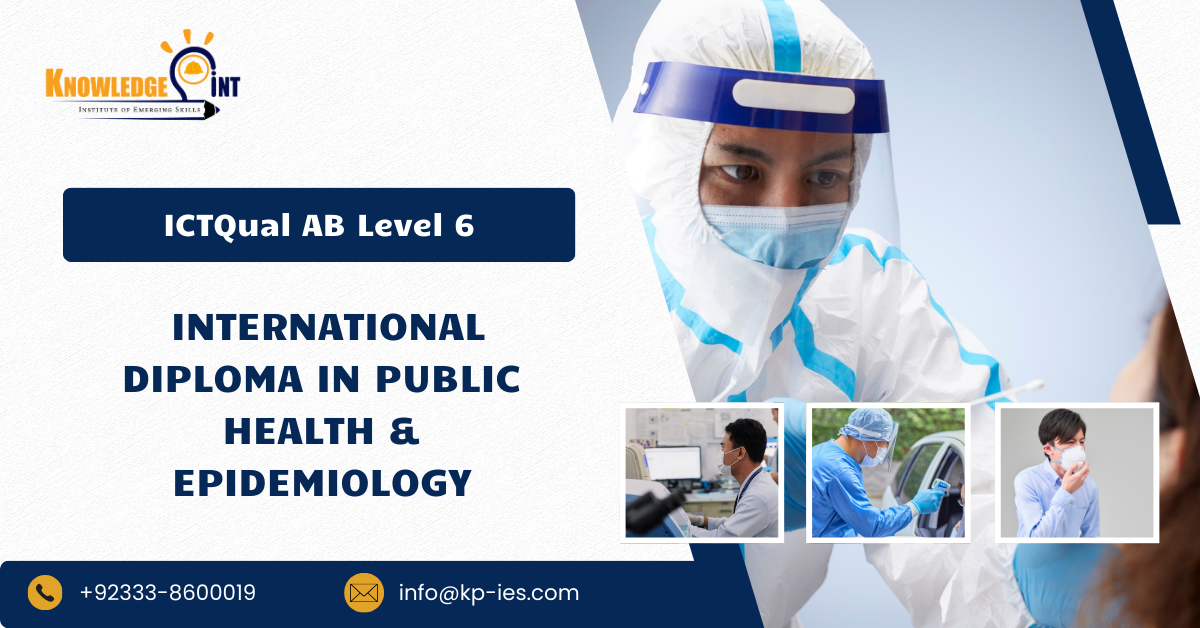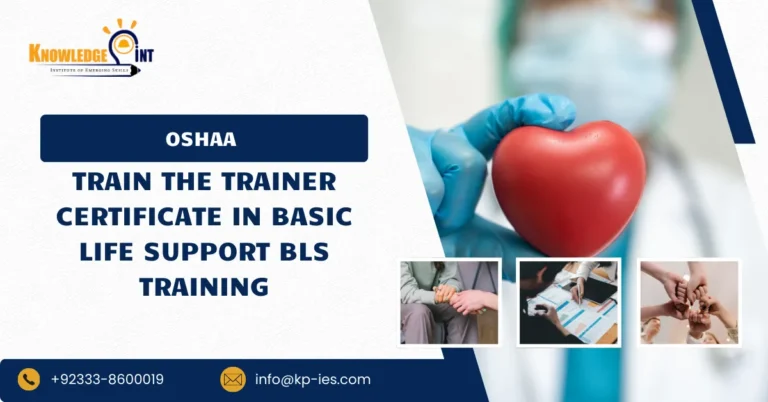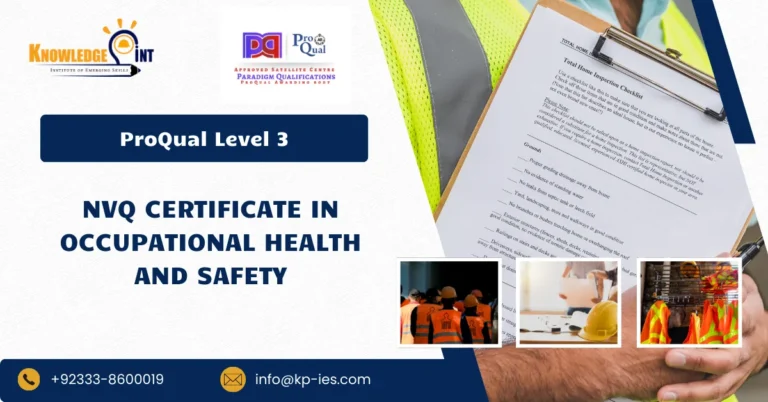The ICTQual AB Level 6 International Diploma in Public Health & Epidemiology is a comprehensive three-year programme designed to equip learners with advanced knowledge, practical skills, and professional expertise in public health, epidemiology, and healthcare research. Spanning 360 credits, this qualification provides a robust foundation for individuals aiming to make a significant impact in healthcare planning, disease prevention, and community health initiatives.
Learners undertaking this programme will develop a thorough understanding of epidemiological methods, health data analysis, policy development, and population health management. The curriculum blends theoretical frameworks with practical applications, ensuring learners can critically assess public health challenges, design evidence-based interventions, and contribute to informed decision-making in healthcare organisations. Emphasis is placed on equipping learners with analytical and research skills that are highly sought after in public health agencies, international health organisations, and research institutions.
Throughout the programme, learners will gain exposure to global health trends, infectious and non-communicable disease management, environmental health, health promotion strategies, and ethical considerations in public health practice. The course also fosters professional competencies in leadership, communication, and collaborative problem-solving, preparing learners to take on strategic roles in healthcare and policy-making environments.
Course Overview
This qualification, the ICTQual AB Level 6 International Diploma in Public Health & Epidemiology 360 Credits – Three Years, consists of 36 mandatory units.
Year 1: Foundation in Public Health & Epidemiology
- Introduction to Public Health
- Fundamentals of Epidemiology
- Human Anatomy and Physiology for Public Health
- Biostatistics and Health Data Analysis
- Principles of Microbiology and Infection Control
- Health Promotion and Disease Prevention
- Nutrition and Community Health
- Environmental Health and Sustainability
- Health Policy and Systems Overview
- Communication Skills for Health Professionals
- Ethics and Professional Conduct in Public Health
- Introduction to Research Methods in Health Sciences
Year 2: Intermediate Public Health Applications
- Advanced Epidemiology and Study Design
- Infectious Disease Control and Prevention
- Non-Communicable Diseases and Chronic Care Management
- Global Health Issues and Health Systems
- Health Economics and Policy Implementation
- Public Health Surveillance and Monitoring
- Occupational and Environmental Health
- Community Health Assessment and Planning
- Health Informatics and Digital Health Systems
- Programme Evaluation and Impact Assessment
- Leadership and Teamwork in Public Health
- Applied Research Methods in Epidemiology
Year 3: Advanced Specialisation and Professional Application
- Advanced Public Health Interventions
- Clinical Epidemiology and Evidence-Based Practice
- Health Risk Assessment and Management
- Biostatistics for Advanced Research
- Global Health Policy and Strategy Development
- Emergency Preparedness and Disaster Management
- Maternal and Child Health Epidemiology
- Advanced Communicable Disease Control
- Health Communication and Advocacy
- Quality Improvement and Risk Management in Healthcare
- Capstone Research Project / Dissertation
- Professional Practice and Field Placement
Learning Outcomes for the Level 6 International Diploma in Public Health & Epidemiology 360 Credits – Three Years:
Year 1: Foundational Knowledge
By the end of Year 1, learners will be able to:
Introduction to Public Health
- Understand the key concepts and principles of public health practice.
- Identify the roles of public health professionals in community and global health.
- Analyse health challenges and determinants affecting populations.
Fundamentals of Epidemiology
- Apply basic epidemiological methods to study disease patterns.
- Interpret incidence, prevalence, and risk factors in populations.
- Design simple observational studies and health surveys.
Human Anatomy and Physiology for Public Health
- Describe the structure and function of major human body systems.
- Understand physiological mechanisms relevant to disease and health.
- Relate anatomy and physiology to public health interventions.
Biostatistics and Health Data Analysis
- Collect, analyse, and interpret health-related data.
- Use statistical tools to summarise and present health information.
- Apply basic quantitative methods to support evidence-based decisions.
Principles of Microbiology and Infection Control
- Identify common microorganisms and their impact on health.
- Apply infection control measures in community and clinical settings.
- Understand pathogen transmission and prevention strategies.
Health Promotion and Disease Prevention
- Design strategies to promote healthy lifestyles and behaviours.
- Implement community-level health interventions.
- Evaluate the effectiveness of disease prevention programmes.
Nutrition and Community Health
- Assess nutritional needs of populations.
- Analyse the impact of diet on public health outcomes.
- Develop nutrition-based health promotion strategies.
Environmental Health and Sustainability
- Recognise environmental factors affecting public health.
- Evaluate sustainable practices to reduce health risks.
- Promote environmental health awareness in communities.
Health Policy and Systems Overview
- Understand healthcare system structures and policy frameworks.
- Analyse policy impacts on population health outcomes.
- Identify strategies to improve public health service delivery.
Communication Skills for Health Professionals
- Demonstrate effective verbal and written communication in healthcare settings.
- Engage with communities to convey health messages clearly.
- Apply interpersonal skills to enhance collaboration with stakeholders.
Ethics and Professional Conduct in Public Health
- Understand ethical principles in public health practice.
- Apply professional standards in community and research settings.
- Evaluate ethical dilemmas and propose appropriate solutions.
Introduction to Research Methods in Health Sciences
- Identify basic research designs and methodologies.
- Conduct literature reviews to support public health research.
- Apply fundamental principles of data collection and analysis.
Year 2: Intermediate Proficiency
By the end of Year 2, learners will be able to:
Advanced Epidemiology and Study Design
- Design and conduct advanced epidemiological studies.
- Analyse complex datasets to identify health trends.
- Critically appraise epidemiological literature for evidence-based practice.
Infectious Disease Control and Prevention
- Develop strategies to prevent and control infectious diseases.
- Monitor outbreaks and implement intervention measures.
- Apply public health guidelines for vaccination and immunisation programmes.
Non-Communicable Diseases and Chronic Care Management
- Understand risk factors and management strategies for chronic diseases.
- Design community-based interventions for disease prevention.
- Analyse health data to monitor chronic disease trends.
Global Health Issues and Health Systems
- Evaluate global health challenges and disparities.
- Examine international health policies and frameworks.
- Propose interventions to address global public health priorities.
Health Economics and Policy Implementation
- Apply economic principles to public health decision-making.
- Assess cost-effectiveness of health interventions and programmes.
- Understand resource allocation in health systems.
Public Health Surveillance and Monitoring
- Implement surveillance systems to track population health.
- Analyse surveillance data to detect health threats.
- Develop reporting strategies for timely public health responses.
Occupational and Environmental Health
- Assess workplace hazards and environmental risks.
- Recommend interventions to promote occupational health.
- Evaluate policies for environmental and occupational safety.
Community Health Assessment and Planning
- Conduct needs assessments for community health programmes.
- Plan and implement interventions based on assessment findings.
- Engage stakeholders to promote sustainable health initiatives.
Health Informatics and Digital Health Systems
- Use digital tools to collect and manage health information.
- Analyse health data to support decision-making.
- Apply informatics solutions to improve healthcare delivery.
Programme Evaluation and Impact Assessment
- Evaluate public health programmes for effectiveness and efficiency.
- Use quantitative and qualitative methods to assess outcomes.
- Develop reports and recommendations for programme improvement.
Leadership and Teamwork in Public Health
- Demonstrate leadership in planning and implementing health projects.
- Collaborate effectively with multidisciplinary teams.
- Apply management principles in public health practice.
Applied Research Methods in Epidemiology
- Design applied research projects in epidemiology.
- Collect, analyse, and interpret health data for research purposes.
- Present research findings to inform policy and practice.
Year 3: Advanced Specialization and Application
By the end of Year 3, learners will be able to:
Advanced Public Health Interventions
- Plan and implement large-scale health interventions.
- Evaluate the effectiveness and sustainability of interventions.
- Develop strategies to address complex public health challenges.
Clinical Epidemiology and Evidence-Based Practice
- Apply clinical epidemiology methods to public health scenarios.
- Integrate research evidence into policy and practice decisions.
- Critically evaluate clinical guidelines and their population impact.
Health Risk Assessment and Management
- Conduct risk assessments for communities and workplaces.
- Develop mitigation strategies for identified health risks.
- Monitor and review the effectiveness of risk management plans.
Biostatistics for Advanced Research
- Apply advanced statistical methods to health research.
- Analyse large datasets using appropriate software tools.
- Interpret complex statistical results to inform public health decisions.
Global Health Policy and Strategy Development
- Develop strategies to address international health priorities.
- Analyse global health policies and their implementation challenges.
- Recommend evidence-based policy solutions for population health improvement.
Emergency Preparedness and Disaster Management
- Plan and coordinate public health responses to emergencies.
- Assess and manage health risks during natural and man-made disasters.
- Develop disaster response protocols and communication strategies.
Maternal and Child Health Epidemiology
- Analyse health indicators for mothers and children.
- Develop interventions to improve maternal and child health outcomes.
- Evaluate public health programmes targeting maternal and child populations.
Advanced Communicable Disease Control
- Apply advanced methods for outbreak investigation and control.
- Develop intervention strategies for emerging and re-emerging diseases.
- Monitor and report on communicable disease trends.
Health Communication and Advocacy
- Design effective health communication campaigns.
- Advocate for public health policies and community engagement.
- Use media and digital tools to disseminate public health messages.
Quality Improvement and Risk Management in Healthcare
- Implement quality improvement strategies in public health programmes.
- Identify and manage risks to improve healthcare outcomes.
- Apply continuous improvement models to organisational practices.
Capstone Research Project / Dissertation
- Plan and conduct a comprehensive public health research project.
- Analyse and interpret research findings to address real-world health issues.
- Present results in a professional report with actionable recommendations.
Professional Practice and Field Placement
- Apply theoretical knowledge in practical public health settings.
- Develop professional competencies through hands-on experience.
- Demonstrate ethical, effective, and evidence-based public health practice.
Course Benefits of ICTQual AB Level 6 International Diploma in Public Health & Epidemiology
- Provides comprehensive knowledge of public health principles, epidemiology, and population health management.
- Equips learners with skills in disease surveillance, health data analysis, and outbreak investigation.
- Develops expertise in preventive healthcare, health promotion, and community health interventions.
- Enhances understanding of healthcare policies, global health regulations, and ethical considerations.
- Offers practical experience in public health research, field studies, and data interpretation.
- Strengthens problem-solving, analytical, and critical thinking skills in public health practice.
- Prepares learners for leadership and management roles in healthcare, government, and international health organizations.
- Improves employability in public health agencies, research institutions, NGOs, and global health organizations.
- Promotes adherence to evidence-based practices, health standards, and community-focused strategies.
- Supports continuous professional development and specialization in epidemiology, biostatistics, and health policy.
After completing this course, learners can progress in the following ways:
- Pursue Master’s degrees in Public Health, Epidemiology, Global Health, Health Policy, or Biostatistics.
- Obtain professional certifications such as Certified Public Health Specialist, Epidemiologist Certification, or Global Health Professional.
- Advance into senior roles such as Public Health Officer, Epidemiologist, Health Policy Advisor, Research Scientist, or Community Health Manager.
- Work with government health departments, international organizations (e.g., WHO, UNICEF), NGOs, hospitals, and research institutes.
- Progress into leadership and strategic roles, managing public health programs, outbreak responses, and health policy implementation.
- Engage in research and development, contributing to disease prevention, health interventions, and global health strategies.
- Transition into specialized areas such as infectious disease control, maternal and child health, environmental health, or health informatics.







